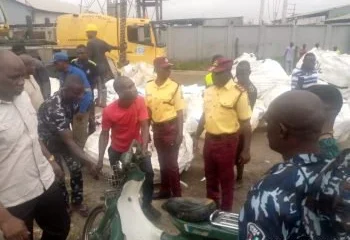News Update
The Most Dangerous States in Nigeria to Travel to Right Now

If you’re planning travel within Nigeria, up-to-date knowledge of regional security risks is essential.
Also Read: Nigeria’s Most Dangerous Routes: Death Traps and Insecurity Hotspots
Multiple international advisories, including from the U.S., New Zealand, the U.K., and Canada, highlight a growing number of states to avoid due to violence, kidnapping, terrorism, and general instability.
18 States Rated “Do Not Travel”

Governments worldwide have flagged 18 states across Nigeria as high-risk zones, warning travelers to avoid them completely:
- Borno & Yobe: Ongoing terrorism and Boko Haram activity
- Northern Adamawa, Kogi, Bauchi, Gombe, Kaduna, Kano, Katsina, Sokoto, Zamfara: High kidnapping and banditry risk
- Abia, Anambra, Bayelsa, Delta, Enugu, Imo, Rivers (except Port Harcourt): Elevated crime, armed robbery, and gang violence
New Zealand’s advisory goes even further, Abuja (outside central area) and nearly all states outside Lagos and Calabar are included in its “Do Not Travel” list due to terrorism and kidnapping threats.
What Makes These States Especially Dangerous
Northeast & Northwest: Insurgent Terror & Banditry
- States like Borno, Yobe, and northern Adamawa remain frontline regions for Boko Haram and ISWAP insurgencies. Persistent attacks, abductions, and bombings continue to destabilize travel corridors.
- In the northwest, Katsina, Kaduna, and Zamfara face intense bandit-led kidnappings and rural raids. Recent operations freed dozens of hostages, often after armed confrontations.
Middle Belt: Ethno-Religious Clashes & Farmer-Herder Violence
- States like Plateau and Benue are plagued by escalating violence between herders and farmers compounded by climate stress and resource competition.
Southern States: Crime, Armed Gangs & Kidnappings
In parts of the South, Rivers, Delta, Bayelsa, kidnapping, port-related insecurity, and gang violence remain serious concerns even in urban zones. Rivers State, in particular, ranks among the most violent in the south.
Capital Area & Other Regions: Spillover Risks
Travel advisories also include the outer suburbs of Abuja, where violent crime including armed robbery and carjackings has spread beyond central areas.
RoadKing.ng Safety Snapshot
Region / Risk Type – Key States Security – Threats
Northeast – Borno, Yobe, Adamawa (North) – Terrorism, bombings, insurgent attacks
Northwest & North-Central – Katsina, Kaduna, Kogi, Zamfara, Plateau, Benue – Kidnappings, bandit raids, communal violence
South (Zones of Access) – Rivers, Delta, Bayelsa, Imo, Enugu etc. – Armed gangs, organized crime, kidnappings
Federal Capital Area – Abuja suburbs – Carjacking, violent robbery
What RoadKing.ng Recommends
- Avoid travel to the listed high-risk states unless absolutely necessary.
- If travel is unavoidable, limit yourself to central urban areas (e.g., Lagos, Port Harcourt, central Abuja).
- Travel during daylight hours only.
- Use registered transport providers or hotel-arranged transfers.
- Stay informed, monitor local news, embassy advisories, and maintain communication with trusted locals.
Final Thought
The security situation in Nigeria remains fluid. Until significant improvements in safety infrastructure and governance occur, even urban hubs carry risk. When planning travel, always exercise extra caution and prioritize safety.




















